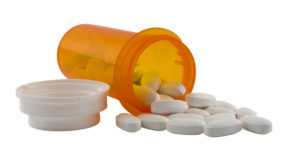 Many studies show that antibiotics disrupt the gut microbiome (intestinal microbial community of bacteria, viruses, fungi) in adults, but what about infants? A recent study found alterations in the gut microbes of young babies from a single course of antibiotics, with an increase in fungal species. And 6 weeks later the gut microbial community still wasn't back to normal. Yikes.
Many studies show that antibiotics disrupt the gut microbiome (intestinal microbial community of bacteria, viruses, fungi) in adults, but what about infants? A recent study found alterations in the gut microbes of young babies from a single course of antibiotics, with an increase in fungal species. And 6 weeks later the gut microbial community still wasn't back to normal. Yikes.
Antibiotics can be life-saving, but they must be used carefully - only when needed. As research shows, when some microbes are killed off by antibiotics, then other microbes (e.g. fungi such as Candida) that are resistant to the antibiotics increase (multiply) and move into the vacated spaces. There are no empty spaces in the gut.
Babies normally have a variety of fungal species in the gut already at a very young age - and this community of fungi is called the gut mycobiota or mycobiome. The Univ. of Helsinki researchers concluded that normally bacteria control fungi numbers in the gut - there is balance of all sorts of microbes (bacteria, viruses, fungi). But if you kill off bacteria (with antibiotics), then fungi numbers increase - an example of an imbalance in the gut microbial community or dysbiosis.
From Science Daily: A single course of antibiotics affects the gut microbiota of infants
A study recently completed at the University of Helsinki revealed that the fungal microbiota in the gut is more abundant and diverse in children treated with antibiotics compared with the control group even six weeks following the start of the antibiotic course. In light of the findings, a reduction in the number of gut bacteria as a result of antibiotic therapy reduces competition for space and leaves more room for fungi to multiply. ...continue reading "Antibiotics Alter Gut Microbes In Young Infants"
